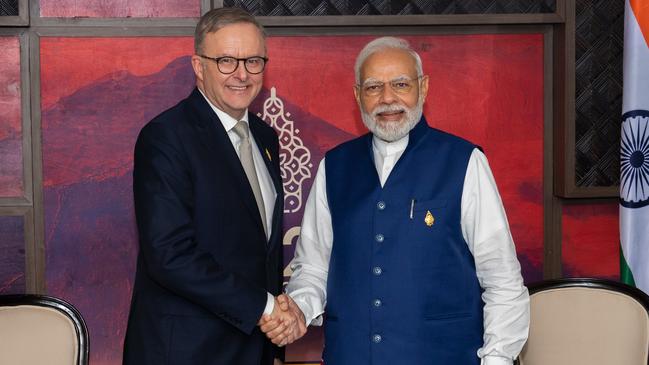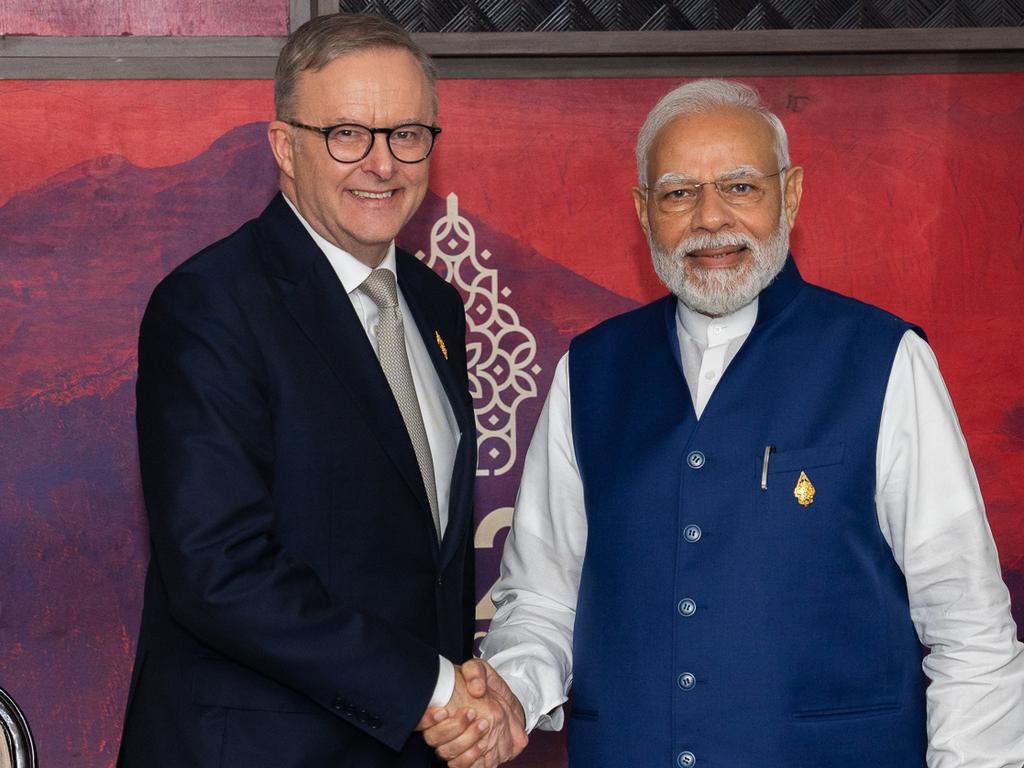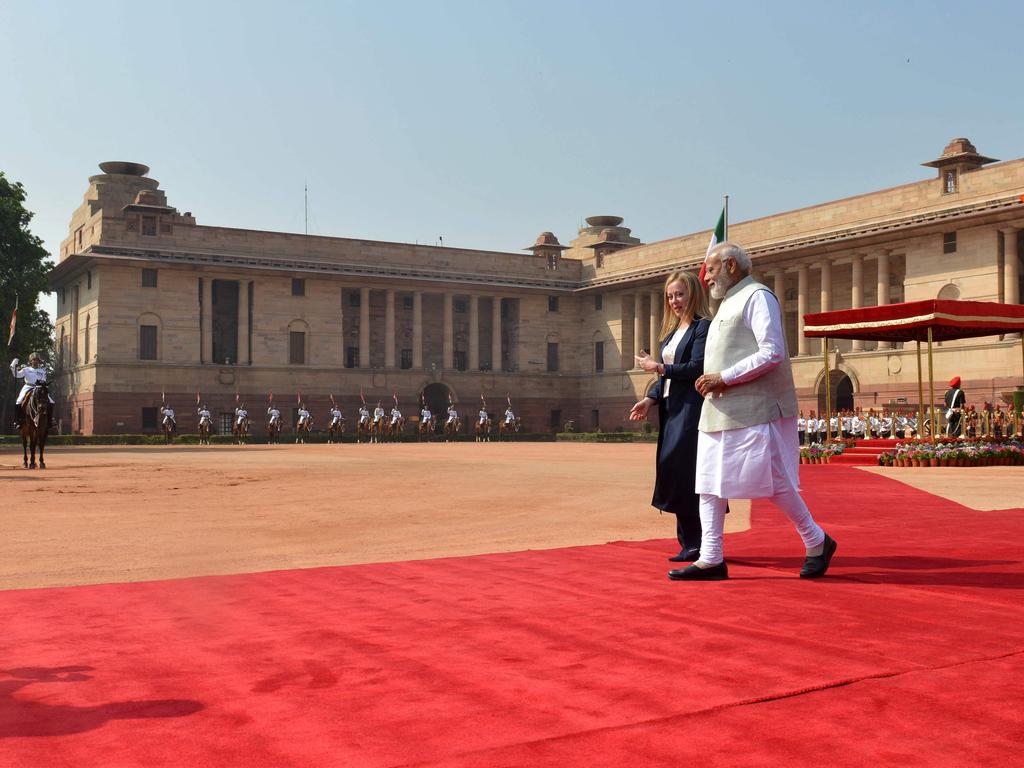
This is a big prime ministerial trip to India, three days, which is an eternity in prime ministerial time, three cities, a big business delegation. The agenda is crammed to bursting.
Albanese will spend a lot of time with his Indian counterpart, Narendra Modi, and will be involved in talks and events concerning minerals trade; education trade; science collaboration; Deakin University becoming the first foreign university to set up a campus in India, with more Australian institutions to follow; two-way investment; renewable energy; vehicle manufacture; immigration and visas; people-to-people and cultural links; cricket (of course); and a huge agenda on security, from Australia hosting the Malabar military exercises through hi-tech defence co-operation and the future of the Quadrilateral Security Dialogue.
This visit is all about giving substance and life to a strategic partnership. The two countries committed to a comprehensive strategic partnership in 2020, including an annual leaders’ meeting. That has not been held in person because of Covid.
Strategic partnerships can mean a lot, or very little. Australia has a CSP with China, after all, which hasn’t been worth a cracker in the wolf warrior era.
Australia wants and needs a strategic relationship with India.
This year, for the first time, Australia is hosting the Malabar exercises involving India, the US, Japan and Australia – in other words, the Quad membership. Malabar began as a bilateral effort involving India and the US. Japan joined permanently in 2015. Now it seems Australia is also permanently invited.
The Malabar exercises are not formally linked to the Quad, and neither Malabar nor the Quad is a military alliance. Nonetheless, these exercises are an intensely important part of regional defence co-operation in the shadow of growing Chinese military assertiveness.
India is the biggest nation in the world, with a population larger and much younger than China’s. It’s the world’s biggest democracy. Over the past few years, it has mostly been the fastest-growing economy.
Just by being itself, India exercises an enormous democratic, Asian counterweight to China.
Australia-India defence co-operation is becoming more wide ranging and intimate every day. The broader relationship is developing the multidimensional substance it needs. A million Australians are of Indian descent. Some 670,000 Australians were born in India.
Our two biggest exports to India are coal and education. This needs broadening, but it’s the reality for the moment, and for a long time to come.
If the world is to make any impact on reducing greenhouse gas emissions, India must be part of the story. It’s making a big effort to install renewable energy and change its energy mix but it will need huge amounts of coal for decades to come.
Australian coal burns cleaner than Indian coal. In asserting the need for us to continue mining and exporting coal and gas, Albanese is not only facing reality and ensuring Australia can make a living, he is providing the basics of our strategic relationship with India.
India punishes the impatient and Albanese is right to spend three days there. The Indians are going to a lot of trouble to honour him, underlining their commitment to the Australian relationship. We must embrace this democratic partner with intelligence and commitment.







Anthony Albanese takes off on Wednesday for one of the most important journeys he will make as Prime Minister. In heading to Ahmedabad, Mumbai and Delhi, he is flying to the future.